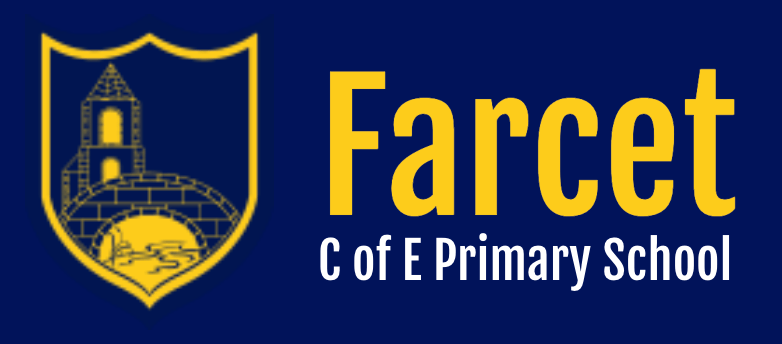New Paragraph

Religious Education
'Let your light shine' (Matthew 5:16)
Implementation
We promise to do the best for all our pupils with everything that they learn. Children who attend our schools are supported to access the full curriculum. Our Christian ethos and values underpin all that we do within our learning and the wider activities in our school.
Our curriculum is designed and focused on equipping our learners with the knowledge and skills they need to achieve their dreams. We aim to grow their confidence, develop their social skills, and equip them to become active participants within their communities.
We maintain high standards and continually look at new ways of teaching our pupils the skills they require, explicitly and directly. Our curriculum is knowledge-rich, specifically sequenced, and is taught to be remembered. It promotes the spiritual, moral, cultural, mental, and physical development of our pupils and prepares them for the opportunities, responsibilities, and experiences of later life. With this in mind the Primary Knowledge Curriculum is used trust wide for foundation subjects.
A knowledge-rich curriculum exposes children to ambitious content that has been highly specified and well-sequenced, leaving nothing to chance. Within schools, time is limited, and a knowledge-rich curriculum ensures that each moment will support children in acquiring the knowledge, skills and cultural capital that they will need to become well-educated citizens of the future. Utilising cognitive science, the psychology of learning, memory and schemata, a knowledge-rich curriculum is designed to ensure that the knowledge is taught to be remembered. At its core, a knowledge-rich curriculum democratises knowledge – it enables all children, regardless of socio-economic background, to be provided with the opportunities to succeed in later life.
DEMAT has developed its own RE curriculum based around three types of knowledge:
• Substantive: the content we want children to know and remember
• Disciplinary: how we introduce our pupils to the ways in which we engage with that content
• Personal: How we help children use their learning to critically analyse their own world views
Previously, the driver of the curriculum was substantive knowledge. Due to the huge body of knowledge, children were often only receiving a broad, and generalised knowledge that led to blanket statements such as all Muslims pray 5 times a day.
• The shift in curriculum design aims to shift to a more nuanced understanding of a more authentic reality of religion and belief.
One big practical change: we will not teach all six major world religions plus humanism. We will not teach lots of topics previously taught, e.g. rites of passage, festivals, places of worship, key stories, key people. NB this is not just happening in DEMAT; it is a nationwide shift.
We can use our approach to the study of history to help us understand what this looks like. When studying a historical event or key figure (substantive knowledge), the disciplinary driver is to help children better understand the sorts of questions historians ask, for example questions about chronology, causation, similarities and difference. The substantive knowledge is the vehicle used to deepen the disciplinary knowledge. This is the change we are making in RE. Rather than the content driving the curriculum, the disciplinary knowledge will drive it.
• Disciplinary knowledge will drive our curriculum choices in RE.
RE has lots of different disciplinary lenses. We need to teach children how to think like a theologian, philosopher, and human/social scientist.
Alongside being introduced to these lenses, children will be introduced to the tools or skills these people use to help them answer these questions. For example, when theologians ask questions about believing, they very often interpret people’s special stories. Here, the key skill is textual interpretations of special texts (e.g. the bible).
• There are three separate lessons to introduce children to the disciplinary lenses: theology, human/social sciences and philosophy.
• Teachers can choose whether they teach the three lessons first, or whether they teach each lesson as children are introduced to each disciplinary lens. 3 The curriculum is designed to introduce children to the lenses, questions, tools and skills incrementally and to deepen this knowledge as they progress through the curriculum. This will then support them to reflect and articulate their own personal views.
• Legislatively it is still called RE but there is a shift nationwide to recognising that we are engaging with people’s world views. People’s world views can be religious or non-religious; they can be a tapestry of both. Everybody has or occupies a world view.
• The subject is now being framed so that children understand it has significance to their own experience of human life regardless of whether they are religious or not.
• The majority of the learning is rooted in Christian worldviews.
• Theo, Livvy and Sophie are purposefully separate in our curriculum to build children’s schema. In secondary school they will learn that these lenses have crossovers.
Implementation
RE lessons are implemented using the Ways of Knowing.
Impact
Our RE curriculum is high quality, knowledge-based, well-sequenced and is planned to demonstrate progression. If our pupils have understood and retained knowledge from the carefully sequenced curriculum we have taught, we know that they are where they should be.
At Farcet C of E Primary School we ensure that children are equipped with reflection, tolerance and knowledge that will enable them to be ready for the curriculum at Key Stage 3 and for life as an adult in the wider world.
We want the children to have thoroughly enjoyed learning about spirituality and world views, therefore encouraging them to undertake new life experiences now and in the future.
